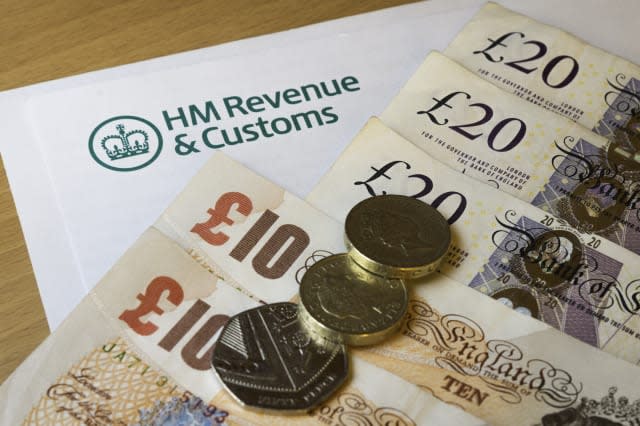How you can be 'nudged' into paying your tax

Billions of pounds extra in tax could be raised by making people feel the odd-one-out if they haven't paid.
HM Revenue & Customs reckons that illegal tax evasion and legal tax avoidance are between them costing the UK government about £34 billion a year.
See also: Celebrities fail to escape £700m tax bill
See also: Are taxes about to rise?
However, a study has found that 'nudging' people with messages such as "nine out of 10 people in the UK pay their tax on time" significantly increases payment rates.
The researchers teamed up with HMRC to include various messages in tax reminder letters to 200,000 people, and say around £4.9 million of tax repayment was brought forward during a 23-day trial.
And the most effective phrase turned out to be: "Nine out of 10 people in the UK pay their tax on time. You are currently in the very small minority of people who have not paid us yet".
So why does it work?
According to Ivo Vlaev, co-author of the study and professor in the Behavioural Science Group at Warwick Business School, the results stem from an evolutionary human desire to belong.
"Framing people's actions as minority behaviour triggers a subconscious feeling of being an outsider, which creates a fear that you don't belong anymore," he says.
"A motivation emerges to affiliate with the majority group, which in this case is people who pay their taxes."
Another technique that helped make people pay up was to be really specific about penalties. Giving details of the added interest cost of non-payment and the payment vehicles that a person could use to pay their tax got more than £9 million of tax paid in time.
What doesn't work, it seems, is appealing to people's better nature.
"Unfortunately, messages based on issues such as public services, fairness or moral concerns have very little effect on behaviour," says Vlaev.
"Those based on deterrence theories - that the HMRC will be monitoring behaviour, or how long it will take to pay - are much better, with similar effects to the most effective 'social norm' messages. There is also unpublished evidence that those approaches work on influencing firms to pay tax."




